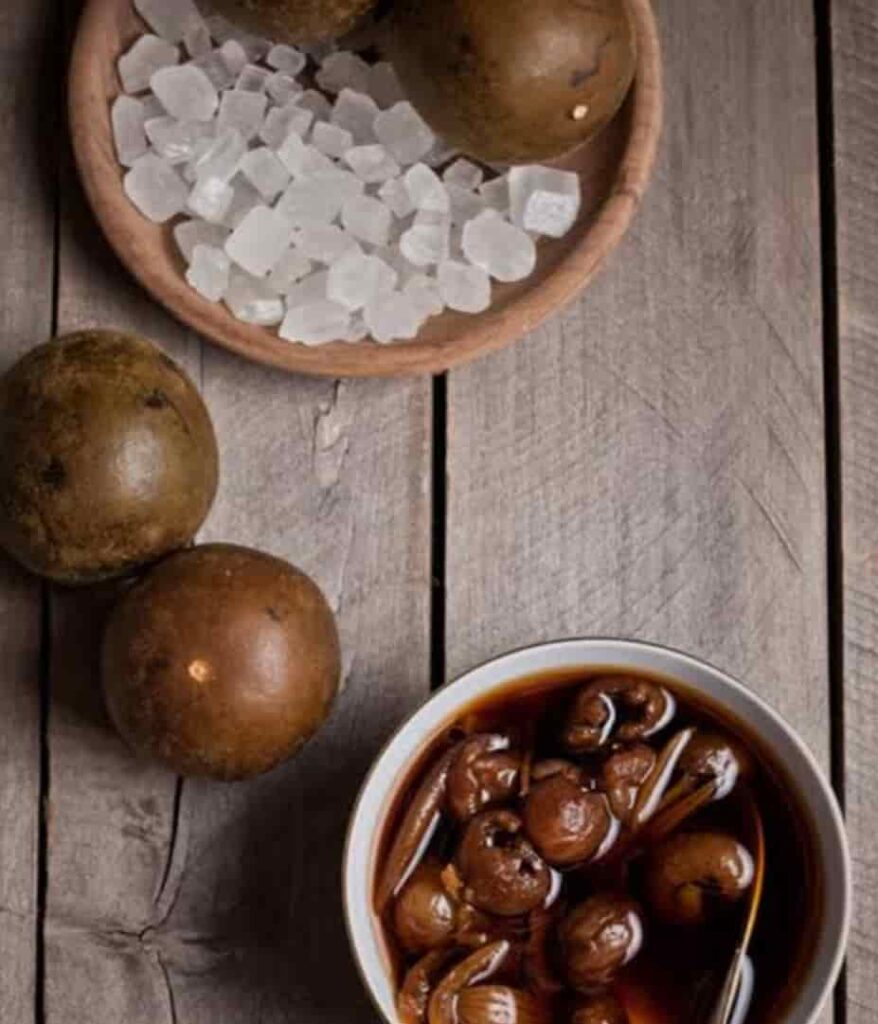Monk fruit is brownish-yellow melon-like fruit which has a smooth outer covering. This fruit is known for its intense sweetness. As it can be a healthy solution for your sugar cravings. It has been making an unrivaled presence in the health and wellness market. Monk fruit is loaded with vitamins, antioxidants, and dietary fibers. This fruit is traditionally used as a remedy for treating sunstroke, throat problems, lung problems, dehydration, bowel discomfort, coughs, and colds. Monk fruit also has various bioactive compounds, which are very good for health.
Nutrition Facts of Monk Fruit
This fruit is a sweetener and contains zero glycemic index. While it does not increase blood sugar levels. Monk fruit contains the following nutrients
- Fat: 0.8%
- Protein: 7.1%
- Fructose: 1.5%
- Total sugar: 25.5%
- Glucose: 0.8%
- Vitamin B1: 337 mg
- Vitamin B2: 123 mg
- Vitamin C: 340mg.
Benefits Of Monk Fruit
1. Maintain Sugar Levels
Monk fruit can have anti-diabetic effects by increasing the rate of blood glucose uptake. The glycoside called mogrosides in the fruit has free radical scavenging properties. It can reduce oxidative stress, which is one of the factors responsible for diabetes. Monk fruit contains anti-hyperglycemic and anti-hyperlipidemic properties. One can use monk fruit sweetener to balance your meals with other carbs without the sugar overload.
2. Promotes Weight Loss
Monk fruit contains bioactive compounds such as mogroside IV and V. It inhibits the production of lipase in the pancreas. This suppresses appetite, increases satiety, and can help in weight management. Consuming mogrosides can also reduce triglycerides and total cholesterol levels. The low calorific value of this fruit can make it keto-friendly.
3. Anti-inflammatory Properties
Monk fruit can reduce oxidative stress in the body and prevent inflammation. According to studies, this fruit has mogroside V that can alleviate the inflammatory response of porcine alveolar macrophages. Monk fruit is said to be anti-inflammatory and may help prevent cancer and keep blood sugar levels stable.
Side Effects Of Monk Fruit
Monk fruit sweeteners may contain erythritol, a sugar substitute that can cause allergic reactions. Although monk fruit allergies are rare. Signs of an allergic reaction may include:
- Rash
- Dizziness
- Abdominal pain
- Vomiting.
Ways To Use Monk Fruit
As monk fruit has a short shelf life in its raw form. It actually turns rancid within a few days. You can use monk fruit sweeteners to sweeten almost anything. One can prepare all the below things from monk fruit:
- Juice, smoothies
- Tea
- Coffee
- Salad seasoning
- Frostings
- Yogurt
- Porridge, pudding, and oatmeal.
